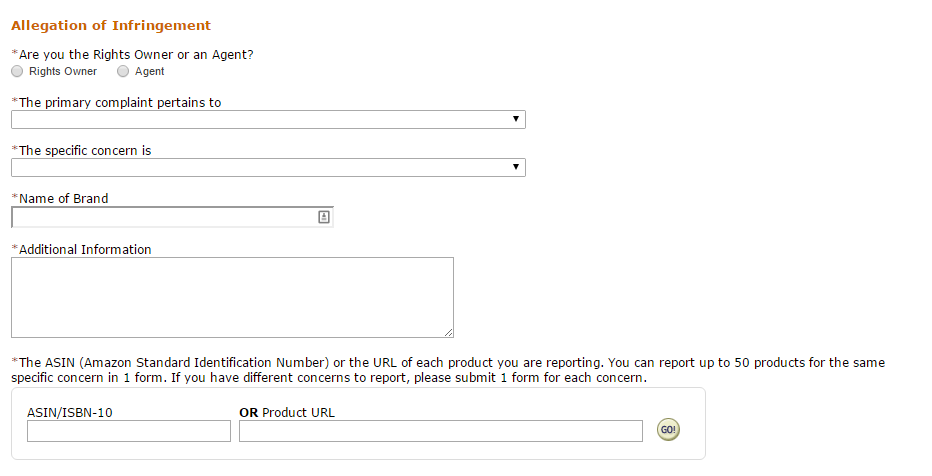Policing Your Brand on Amazon: Copyright & Trademark Infringement

For several years, brands have asked Amazon to help them find and punish unauthorized resellers for their violations. Unfortunately for brands, Amazon takes a percentage of third party sales within their marketplace and is hesitant to enforce seller pricing agreements and risk losing revenue.
As a result of leaks in the supply chain, resellers obtain authentic products and sell them online below their MAP pricing or attempt to violate trademark /copyrights. This makes it increasingly difficult for brands to protect themselves. It’s a concern we hear all too often among sellers,
“What can I do if my brand is threatened by an unauthorized seller?”
In the following blog series, “Protecting Your Brand on Amazon“, we will address common concerns from copyright / trademark infringement to MAP violations and provide brands with the ammunition they need to protect themselves against these types of attacks.
Copyright / trademark infringement is the unauthorized use of a trademark or service mark on competing or related goods and services.
When infringement occurs on Amazon, a trademark owner may fill out a form (provided by Amazon) or file a lawsuit against the infringing user of the same or similar mark to prevent further use of the mark and collect money damages for the wrongful use.
If the mark in question is protected under the Lanham Act, an infringement action may be brought forward. In most cases, Amazon has the authority to shut down a seller, if they determine the copyright / trademark has been violated.
Typically, the success of an infringement case depends on whether the defendant’s use of the trademark creates a “likeliness” of confusion among consumers and further weakens the value of the trademark.
The trademark does not need to be identical to the violator in question in order for Amazon to shut down the seller. If the mark is similar enough to the original – and generates enough confusion among the average consumer (within the same market), it can constitute infringement.
“I think something we need to differentiate is brand enforcement vs. copyright and trademark infringement,” Sprigley Allan Head of Amazon Program Development at CPC Strategy said.
“Those are two very different things, they both allow very different avenues for attack.”
According to Allan, copyright/ trademark infringement is a concern Amazon is serious about and is getting better and better at handling.
“If you are manufacturing a product overseas and it’s under trademark and someone else purchases that product and imports it without your written authorized consent and then sells it in the United States (under your trademark) – that’s a trademark infringement. That is something Amazon can take down a seller for. Fraudulent and counterfeit products fall into the same set of headaches.”
Supply Chain Relations
https://tinuiti.com/blog/2016/09/how-to-get-brand-gated/
According to Allan, Amazon sellers concerned about copyright / trademark infringement should always have open communication with their supply chain relations. Brands should make sure they are in good relations with their manufacturers and take the time to have regular conversations with them. Brands should let their manufacturers know if they are concerned about infringement. While it may sound like a simple suggestion – leaks in the supply chain are typically the source for copyright / trademark violations.
Drop in Buy Box Percentage
“Performance metrics are going to be your best indicator of a violation. First indicator that there is an issue with trademark / copyright infringement is a decrease in Buy Box share because someone has come in and is offering the product in question at an artificially low price. If you see someone selling your product at below your wholesale- that’s a red flag.”
Negative Reviews
The last clear warning sign of trademark / copyright infringement is negative product reviews. If you start to notice customers complaining about the quality of your product (example: easily breaks, doesn’t work properly) there is good chance someone is trying to create and sell under your trademark name and leverage your target market.
Copyright / trademark infringement can impact a brand’s functionality severely by impacting their Buy Box share, revenue and most importantly – brand reputation.
Allan cites the example of a company with a successful fitness product, that was targeted by an unauthorized seller. The product was initially manufactured in Taiwan but later moved to a different factory in China because of cheaper cost and better product quality.
The factory in Taiwan continued to manufacture and sell the fitness product illegally under the company’s trademark.
Eventually, the product’s revenue dropped nearly 25% and the company selling the legitimate product lost more than 10% of their buy box share. Negative reviews flooded in with customers complaining about broken parts and malfunctions. The issue became so severe that the company had to consider a complete rebranding of their fitness products line to escape the negative feedback.
Check out the Amazon Seller Tools & Services MASTER LIST here.
Amazon provides several forms to sellers who would like to report a potential copyright / trademark infringement. This form is intended for use by intellectual property rights owners and their agents to notify Amazon of alleged intellectual property infringements such as copyright and trademark concerns.
If you are not an intellectual property rights owner or their agent, Amazon will not be able to process complaints submitted through this form.

According to Amazon’s Report Infringement page, they will not be able to enforce the following:
When a detail page is created, it becomes a permanent catalog page on Amazon.com that will remain even if the creator’s inventory sells out. Additionally, when you add your copyrighted image to a detail page, you grant Amazon and its affiliates a non-exclusive, worldwide, royalty-free, perpetual, irrevocable right to exercise all rights of publicity over the material.
Other sellers can list their items for sale against pages that you have created or added your copyrighted images to. However, we do require sellers to list only against detail pages that exactly match their items. If you believe sellers are listing against detail pages that do not exactly match their items, we ask that you report the violation directly by using the contact us form.
Amazon respects a manufacturer’s right to enter into exclusive distribution agreements for its products. However, violations of such agreements do not constitute intellectual property rights infringement. As the enforcement of these agreements is a matter between the manufacturer and the retailers, it would not be appropriate for Amazon to assist in enforcement activities.
